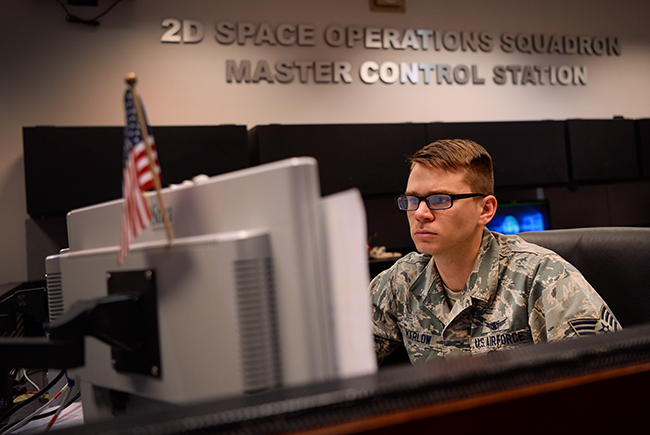
An enlisted airman at Schriever Air Force Base's 2nd Space Operations Squadron in Colorado, which commands and controls the GPS satellite constellation, monitors a computer May 16, 2018. Air Force photo by Kathryn Calvert.
The Air Force’s decision to allow enlisted airmen to fly the RQ-4 Global Hawk may now be paving the way for further opportunities for those personnel in space operations.
Schriever AFB, Colo., has seven enlisted airmen controlling global GPS constellations, Air Force Chief of Staff Gen. David Goldfein told the Senate Armed Services Committee Thursday.
After allowing enlisted members in 2016 to learn to pilot the RQ-4 as a way of bolstering the RPA operator enterprise, the service acknowledged a similar need in its space ranks.
“As we work through in space and look at building the force we need to fight and win in a contested environment, today all constellations are being flown by our young enlisted force,” Goldfein said. “The question we’re asking is, what is the future of the enlisted operator when you look at space transitioning to a contested domain, and high-altitude ISR going forward, and is there a broader discussion that we’re having about that enlisted operator in high-altitude ISR when it’s above the atmosphere and below the atmosphere, and is there a career path where someone can now go into the business of [intelligence, surveillance, and reconnaissance] as an enlisted operator and transition between the two? … That’s where I think we’re going to land.”
